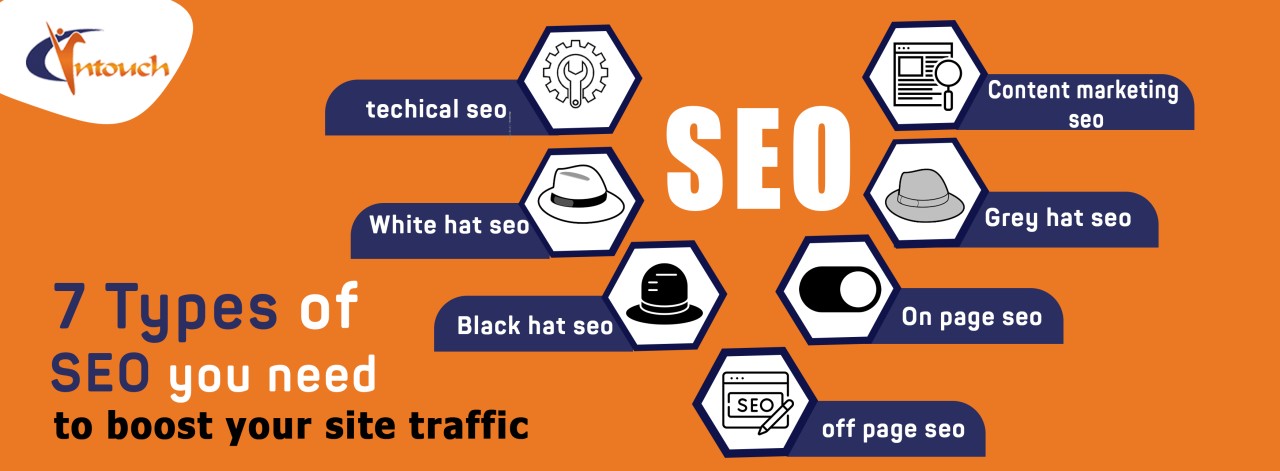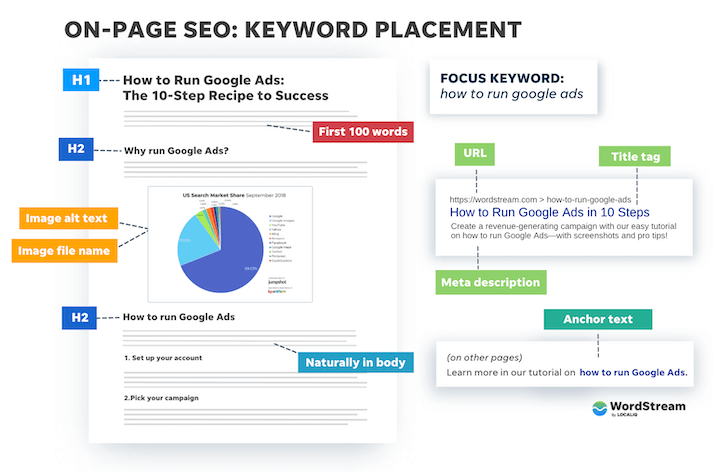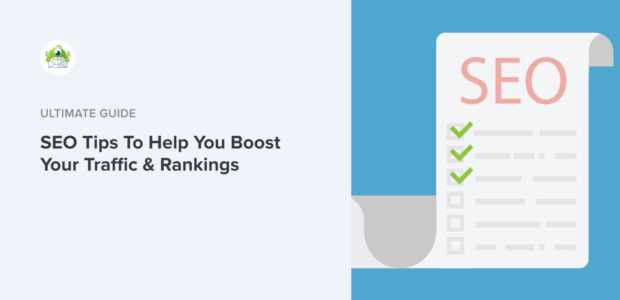![]()
Thank you for reading this post, don't forget to subscribe!
Uncover the secret to skyrocketing your website traffic using powerful SEO keywords – don’t miss out on this game-changer!

Image courtesy of via DALL-E 3
Table of Contents
- Getting Started with SEO Keywords
- How Search Engines Work
- Types of SEO Keywords
- Finding the Right SEO Keywords
- Where to Place SEO Keywords
- Optimizing Content with SEO Keywords
- Using Keywords in Blog Posts
- Tracking Your Keyword Success
- Learning from Competitors
- Staying Updated with SEO Keywords
- The Power of SEO Keywords
Getting Started with SEO Keywords
When it comes to getting your website noticed on the internet, SEO keywords play a crucial role. These keywords are like magic words that help search engines like Google find your website amidst the vast online world. Let’s delve into what SEO keywords are all about and why they matter.
What are SEO Keywords?
SEO keywords are specific words or phrases that are strategically placed on a website to match what people type into search engines like Google. By including these keywords in your website content, you are making it easier for search engines to understand what your site is about and display it to users looking for similar information.
Why are SEO Keywords Important?
SEO keywords are essential because they are the bridge that connects your website to potential visitors. When you use the right keywords effectively, your website can appear higher in search engine results, making it more likely for people to click on your website. This increased visibility can lead to more traffic and ultimately help your website grow.
How Search Engines Work
Search engines like Google use a special process to find and show websites when someone searches for something. Let’s dive into how these search engines work!
Crawling and Indexing
When you search for something on Google, it’s not actually searching the whole internet in that moment. Search engines have already looked at a lot of websites and saved them in a huge library called an index. This is like a giant bookshelf where they store all the websites they find.
Ranking Websites
After a search engine finds websites, it decides which ones to show first when you search for something. It looks at many factors to decide, like the keywords on a website, how often the website is updated, and how many other websites link to it. This helps them show you the most relevant and helpful websites first.
Types of SEO Keywords
In the world of SEO marketing, strategists use different types of keywords to enhance a website’s visibility and increase traffic. Let’s delve into two key categories of these keywords: Short-tail vs. Long-tail Keywords and Primary vs. Secondary Keywords.

Image courtesy of www.linkedin.com via Google Images
Short-tail vs. Long-tail Keywords
Short-tail keywords are brief and general terms that broadly describe a topic. They are more competitive because many websites use them, making it challenging to rank high in search results. On the other hand, long-tail keywords are longer, more specific phrases that target a narrower audience. While they may have lower search volumes, long-tail keywords often lead to higher conversion rates as they attract users looking for precise information.
Primary vs. Secondary Keywords
Primary keywords are the main terms that define the primary focus of a webpage’s content. These keywords should appear prominently throughout the website and help search engines understand the main topic. Secondary keywords are additional terms that support the primary keywords and provide context or additional information. They help in diversifying the content and making it more relevant to a wider range of search queries.
Finding the Right SEO Keywords
When it comes to optimizing your website for search engines, selecting the right SEO keywords is crucial. These keywords are the terms that people type into search engines like Google when looking for information. In this section, we will explore the process of finding the best keywords that can help drive traffic to your website.
Keyword Research
Keyword research is the foundation of any successful SEO strategy. It involves identifying the terms and phrases that are most relevant to your website’s content and that your target audience is likely to search for. One way to conduct keyword research is to put yourself in the shoes of your potential visitors and think about what they would type into a search engine to find your site.
Additionally, you can use online tools like Google Keyword Planner or SEMrush to discover popular keywords related to your niche. These tools provide insights into search volume, competition, and other valuable data that can guide your keyword selection process.
Using Keyword Tools
Utilizing keyword tools can streamline the process of finding the right SEO keywords for your website. These tools offer valuable information on the performance of specific keywords, helping you choose the ones with the highest potential for driving traffic to your site.
Moreover, keyword tools can suggest related keywords that you might not have considered, expanding your keyword list and improving your website’s visibility on search engines. By leveraging these tools, you can optimize your keyword selection process and enhance your overall SEO strategy.
Where to Place SEO Keywords
When it comes to using SEO keywords on your website, knowing where to place them is crucial for improving your site’s visibility online. Here are some key areas where you should optimize your content with relevant keywords:

Image courtesy of www.wordstream.com via Google Images
In Website Content
In order for search engines like Google to understand what your website is about, it’s important to use SEO keywords throughout your website’s content. This includes incorporating keywords naturally into the text of your web pages, blog posts, and any other written material on your site. By strategically placing keywords in your content, you can help search engines identify what topics your website covers, making it easier for users to find you when they search for related terms.
In Meta Tags and Descriptions
Meta tags and descriptions are parts of your website’s code that provide information about your site to search engines. These behind-the-scenes elements are not visible to visitors, but they play a crucial role in helping search engines understand the content of your website. By including relevant SEO keywords in your meta tags and descriptions, you can improve your site’s chances of ranking higher in search results. Make sure to include keywords in the meta title, meta description, and meta keywords to optimize your site for search engine visibility.
Optimizing Content with SEO Keywords
When creating content for your website, it is crucial to optimize it with the right SEO keywords to attract more visitors. Here are some tips on how to effectively incorporate keywords into your content:
Writing for Your Audience
One of the most important aspects of optimizing content with SEO keywords is to focus on creating valuable and engaging content for your audience. While it is essential to include relevant keywords, the primary goal should be to provide information that your readers will find useful and enjoyable to read.
Avoiding Keyword Stuffing
While it may be tempting to overload your content with keywords in an attempt to improve search engine rankings, this practice can actually have a negative impact. Keyword stuffing makes your content sound unnatural and can deter readers from engaging with your website. It is important to strike a balance between including keywords and maintaining a natural flow in your content.
Using Keywords in Blog Posts
Blog posts are a fantastic platform to incorporate SEO keywords that can boost your website’s visibility on search engines like Google. By strategically placing relevant keywords throughout your blog content, you can attract more visitors to your site and increase your online presence.

Image courtesy of www.techwyse.com via Google Images
Creating Helpful Blog Content
When crafting blog posts, it’s essential to focus on creating valuable content that addresses the needs and interests of your target audience. Consider what questions they may have or what information they are seeking, and tailor your blog posts to provide solutions or insights that are both helpful and engaging.
Strategic Keyword Placement
Integrating SEO keywords into your blog posts should be done strategically. Avoid simply stuffing keywords into your content without any regard for context or readability. Instead, aim to naturally incorporate relevant keywords in your headings, subheadings, and throughout the body of your blog posts.
Tracking Your Keyword Success
After selecting the best SEO keywords for your website, it’s essential to track their performance to ensure they are effectively driving traffic to your site. By monitoring your keywords, you can identify what is working well and make adjustments as needed to improve your website’s visibility.
Using Analytics Tools
One way to track the success of your SEO keywords is by using analytics tools. These specialized programs provide valuable insights into how people are finding your website using specific keywords. By examining the data from these tools, you can see which keywords are bringing in the most traffic and which ones may need to be optimized.
Evaluating and Adjusting Your Keywords
It’s important to regularly evaluate the performance of your keywords and make adjustments accordingly. If you find that certain keywords are not driving as much traffic as you had hoped, it may be time to switch them out for more effective alternatives. By continuously monitoring and adjusting your keywords, you can ensure that your website remains competitive in search engine rankings.
Learning from Competitors
When it comes to improving your website’s visibility on search engines, one valuable strategy is learning from your competitors. By analyzing what keywords your competitors are using and understanding their approach, you can gain insight into how to enhance your own SEO strategy.

Image courtesy of optinmonster.com via Google Images
Analyzing Competitor Keywords
One way to learn from your competitors is to analyze the keywords they are using on their websites. By identifying the keywords that are driving traffic to their site, you can gain a better understanding of what works in your industry.
Tools like SEMrush and Ahrefs allow you to see which keywords your competitors are ranking for and how well those keywords are performing. This information can help you identify gaps in your own keyword strategy and find new opportunities to target potential customers.
Adopting and Improving
Once you have identified the keywords that are working for your competitors, you can adopt similar strategies on your own website. However, it’s important to not just copy their approach blindly. Instead, aim to improve upon their tactics by adding your unique spin and value proposition.
For example, if you notice that a competitor is ranking well for a specific keyword related to your industry, think about how you can create even better content around that keyword. By providing more comprehensive information, better visuals, or a more user-friendly experience, you can differentiate your website and attract more visitors.
Staying Updated with SEO Keywords
As we know, the way people search for information on the internet can change over time. New words and phrases become popular, while others may lose their relevance. It’s essential to stay informed about these trends to ensure that your website remains visible to users searching for your content.
Regularly Reviewing and Updating Keywords
Just as fashion trends come and go, so do the keywords that drive traffic to websites. It’s crucial to regularly review the keywords on your site and make updates to keep them aligned with current search patterns. By staying proactive in this regard, you can maintain the competitiveness of your website and continue attracting visitors.
The Power of SEO Keywords
SEO keywords are like magic words that help websites show up when people search online. When you use the right keywords, you can make your website easier to find on Google and bring more people to visit your site.
Bringing in More Visitors
By choosing the best SEO keywords, you can attract more visitors to your website. When someone types a word or phrase into a search engine like Google, it looks for websites that match those keywords. If your website has those keywords, it has a better chance of showing up in the search results and getting more visitors.
The Importance of SEO Efforts
SEO marketing is all about using the right keywords to boost your website’s traffic. By continuously updating and refining your SEO strategy, you can stay ahead of the competition and reach more people online. It’s important to keep learning about new trends and keywords so that you can always stay on top of your SEO game.
Get Your Free SEO Report Now.
GET YOUR WEBSITE Seo Report
About us and this blog
We are a digital marketing company with a focus on helping our customers achieve great results across several key areas.
Request a free quote
We offer professional SEO services that help websites increase their organic search score drastically in order to compete for the highest rankings even when it comes to highly competitive keywords.
Subscribe to our newsletter!
More from our blog
See all postsRecent Posts
- Boost Your Pagerank with Proven SEO Tips April 2, 2024
- SEO Cheat Sheet: Top Google Tips April 2, 2024
- Boost Sales with Google SEO Optimization April 2, 2024










